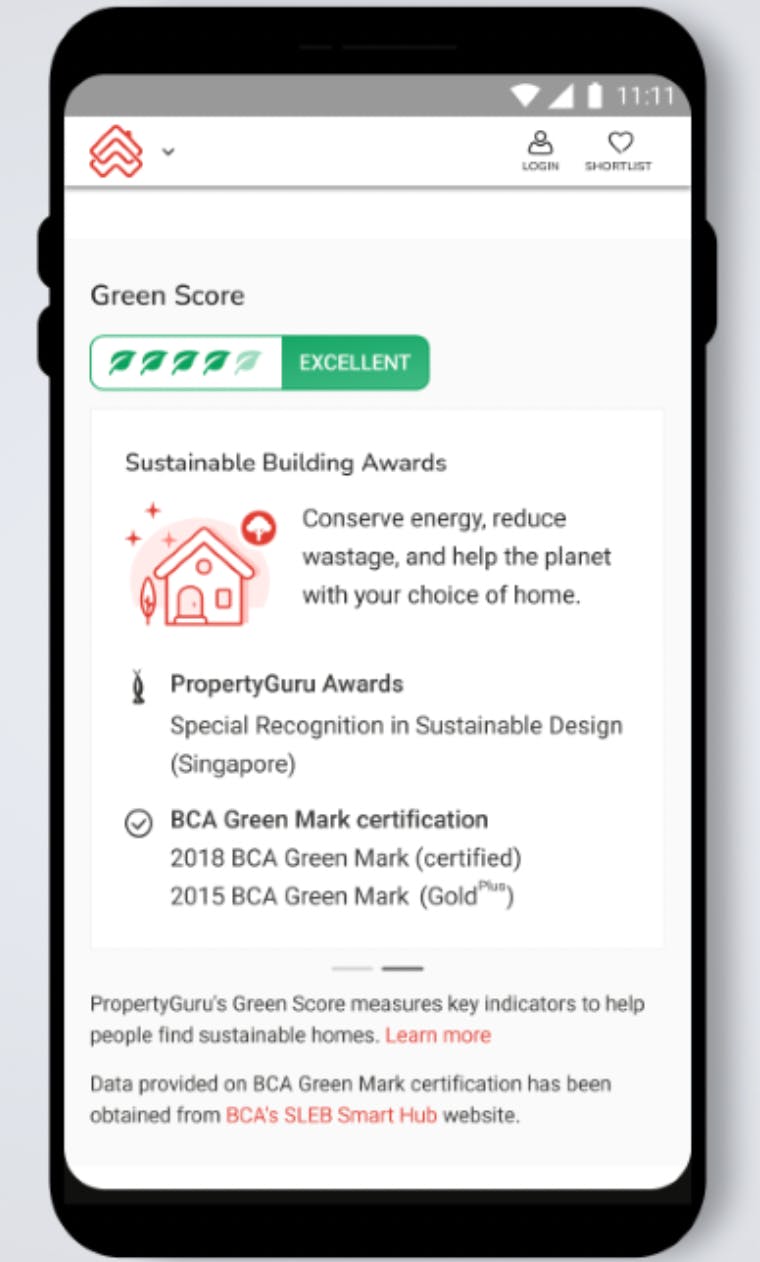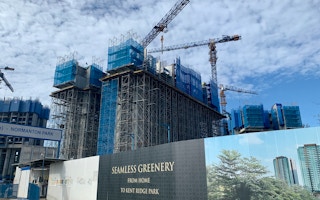A website for home-buyers has launched a service in Singapore that identifies properties with small environmental footprints.
To continue reading, subscribe to Eco‑Business.
There's something for everyone. We offer a range of subscription plans.
- Access our stories and receive our Insights Weekly newsletter with the free EB Member plan.
- Unlock unlimited access to our content and archive with EB Circle.
- Publish your content with EB Premium.
The ‘Green Score‘ from property portal PropertyGuru rates condominiums and public housing flats on their relative green merits, weighing up factors such as the sustainability accreditation of the building and proximity to public transport before giving a property a score.

PropertyGuru’s ‘Green Score’ as it appears on a mobile phone screen [click to enlarge]
Higher scores will go to properties that are located within 400 metres of bus or subway stops, are certified by Singapore’s Green Mark green building scheme, or have won a sustainability award at PropertyGuru’s real estate awards show, Asia Property Awards.
The rating launches off the back of a consumer study by PropertyGuru that found that 82 per cent of Singapore residents will consider paying more for an environmentally sustainable home, with the top considerations including smart cooling systems, high-insulation windows and doors, and solar panels.
The survey also found that 81 per cent of Singaporeans voiced the need to preserve forested areas from urban development.
The Green Score launches at a time of growing awareness of the impact of the built environment on Singapore’s dwindling forested areas. The flattening of a patch of forest to make way for an agri-tech park caused a national outcry earlier this year, while ongoing construction has led to record levels of human-wildlife conflict as the country’s remaining fauna runs out of space in which to live.
PropertyGuru’s green rating does not account for the ecological value on which the property was built, or whether an environmental impact assessment (EIA) was made before the land was developed. The lack of an EIA law to make forest clearance easier for developers came to light in the deforestation incident in February.
An architect and member of the Royal Institution of Chartered Surveyors governing council, who prefered to remain anonymous, commented that although the guide was simplistic and “a bit of a gimmick”, it might help to shift mindsets towards more environmentally-conscious home buying in Singapore. He added that connectivity to the city was a better sustainability indicator than a property’s proximity to public transport, and a feature that benchmarked the energy efficiency and consumption of properties would help the credibility of the guide.
The built environment accounts for 39 per cent of the world’s carbon emissions, and in Singapore, a city-state, building developments cover around 80 per cent of the island. Singapore is 4°C hotter in built-up areas compared to green spaces, and the city is projected to get as hot as 35 to 37°C by the end of the century, heating twice as fast as the global average.
In the latest version of Singapore’s green building certification scheme, which launched earlier in the year, buildings are to be evaluated based on their resilience and adaptation to climate change and their use of nature-based solutions to protect, manage, and restore natural or modified ecosystems.








